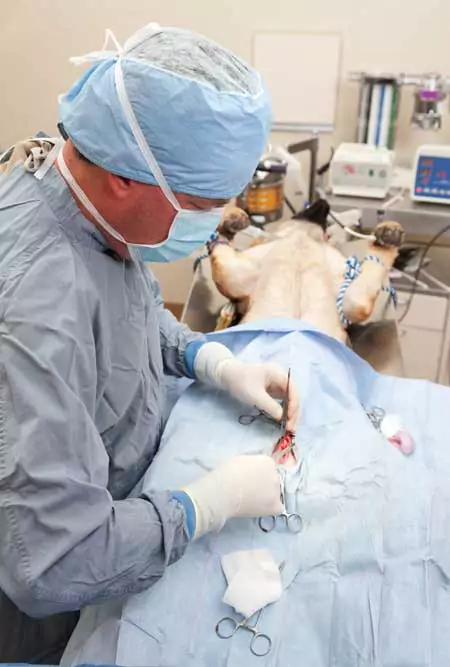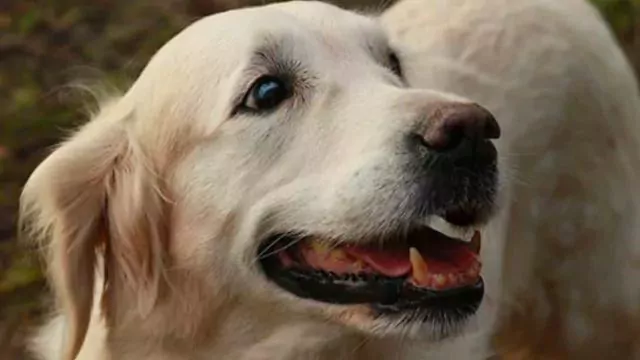RSPCA Shock Admission
The RSPCA senior Vet admits to neutering dogs at Six Weeks. This is Abuse by any name and is a national disgrace.
RSPCA Admit Spaying and Castrating Puppies At Six WeeksPlease sign my Petition to stop this barbaric practice

The RSPCA, the UK’s largest animal welfare organisation, and the nation’s conscience regarding animal cruelty has admitted to a programme of castrating and spaying dogs as young as six weeks old.
I believe these actions could possibly contravene the Animal Welfare Act of 2007.
The RSPCA along with other organisations were to some extent instrumental in the inclusion of the “duty of care” part of that legislation.
The bill, possibly the most important legislative move on captive and domestic animals since the Protection of Animals Act of 1911 came into effect on 6th April 2007.
It makes owners and keepers responsible for ensuring that the welfare needs of their animals are met. These requirements include the following:
The need:
For a suitable environment (place to live)
For a suitable diet
To exhibit normal behaviour patterns
To be housed with, or apart from, other animals (if applicable)
To be protected from pain, injury, suffering and disease
The RSPCA is not the only charity performing these operations. These are shown at the bottom of this page. Also, there are breeders especially of Australian Labradoodles that are neutering their pups at six to seven weeks. One of them is a breeder near Cardiff called Lisa Carson.
I can find no mention of her neutering her pups at six/seven weeks on her website but I assure you she does. I would avoid her like the plague.
It is said that (neutering) spaying and castration can make for a better and more affectionate family pet. Unfortunately, the opposite is often the case.I believe these procedures are often done for the profit of the person carrying out the operation or the breeder who keeps the prices ludicrously high for what I believe are ruined puppies, not for the betterment of the health and well-being of the animal involved
How can an animal display normal behaviour patterns, if three of the most important hormones that create both physical and mental maturity are removed or reduced at this age?
How can a dog be protected from pain and injury when the hormones that allow normal bone and muscle growth are removed at such a young age.
I spoke to David Yates BVSc MRCVS the RSPCA’s hospital director for the Greater Manchester animal hospital.
Who stated categorically, that neutering before puberty and as young as six weeks old is acceptable.
David was the Senior RSPCA Vet at the time of writing. He told me that the RSPCA had pursued this position since 2007.
Most of the large national rescue centres including Battersea Dogs Home and The Dogs Trust vehemently disagree.
This is not just a national disgrace, I believe it shows a woeful lack of knowledge on how and when animals, and in particular dogs mature both physically and psychologically.
Hormones such as Oestrogen, Progesterone, and Testosterone are not optional extras. They are vital to the health and well-being of ALL young mammals. Not just dogs.
However, spaying and neutering at this age will inhibit many dogs from exhibiting normal behaviour patterns, such as cocking and marking. And can often affect normal psychological and physical maturity.
Allowing an animal to exhibit normal behaviour patterns, is one of the main constituents of the Animal Welfare Act. I, therefore, believe the RSPCA may be acting in contravention of the very ACT they helped create.
I have written an in-depth article on Neutering, with quotes from leading Veterinary Oncologists and specialists, who confirm my findings. CLICK HERE
Battersea Dogs & Cats Home have stated that they recommend cats and dogs are neutered from around six months of age upwards, taking into consideration the breed and behaviour of the animal.
They state “We would not recommend neutering kittens and puppies at 6 weeks old as the animal has not had time to mature and develop properly”.
The Kennel Clubs Geneticist Jeff Sampson, stated quite equivocally, “In our view neutering puppies at 6 weeks old seems totally irresponsible.
Regardless of the potential health benefits, which are far from universally accepted, neutering at 6 weeks old is just too young.’
Chris Laurence MBE QVRM TD BVSc MRCVS. Veterinary Director of The Dogs Trust, stated that they never spay or neuter at such an early age, and would wait until pre-puberty ie around 6 months. Dr Lawrence told me that spaying and neutering at 6 weeks could have a detrimental effect on these young pups.
He lists early socialisation as a major factor and that these animals can be spayed or castrated at a later time, therefore, why do this so young?
The Blue Cross has confirmed, that if a dog is adopted from the Blue Cross when it is under six months old they will provide the adopter with a voucher supporting payment of the procedure, to be carried out by a vet at a later stage. Alternatively, where practical, the procedure will be undertaken by a vet employed by a Blue Cross animal adoption centre. The Blue Cross has stated that neutering under six months is not advisable!
My personal belief is that six months is still far too early for nearly all breeds of dogs. A great Dane does not mature until 36 months, German Shepherds 18 months, Labs 14 months, Staffie’s 12 months and Jack Russell’s 11 months.
It is very clear one size does not fit all. A number of people have stated that we are following the American trend in these actions.
Why? We do not have the same problems they have in the USA.
In the USA dogs are effectively latchkey dogs that are let out to fend for themselves during the day.
The non-neutered pets could cause unwanted litters. This is not a problem we have in the UK. Unless I am missing something here?
We used to do that in the 50s and 60s when my own dog a German Shepherd would visit the butcher, his friends and then come and meet me at the school gates.
When I look out of my house or car window I never see packs of dogs roaming the streets looking for mates.
There have been many scientific studies on the beneficial outcome of neutering, especially on a physiological level.
But very little I can find on a psychological and behavioural level. To this end, I started asking relevant questions within my dog behaviour practice in 2001.
I started noticing frustration, lack of attention, inability to concentrate, and puppy like behaviour.
This was considerably more prevalent in dogs that were neutered at a younger age, rather than those that were allowed to mature naturally.
I call this (paedomorphic behaviour) in other words dogs that retain perpetual puppy like characteristics.
I also observed that bitches spayed too early may be far more interesting to intact males; which may cause the female to become aggressive and protective of this attention in adulthood.
Despite popular belief, spaying does not calm a female down. It may help to calm certain behaviour’s in males, but not females. calming hormones such as progesterone and oestrogen are totally removed.
These work as serotonin uplifters which affect mood and well-being. Remove these from a fractious dog and you can get a dog that is more bad tempered and aggressive.
The immature castrated male dog may often squat for the remainder of its life, never showing normal adult marking behaviour, and can often appear more sexually interesting to intact males, causing unwanted attention and aggressive retaliation.
There appear to be testosterone surges by the time the male pup reaches 4 to 5 months, reaching a peak at 10 months of age, and then they fall to adult male levels by around 18 months of age .depending on breed and size, which clearly turns on a dormant hard-wired program that establishes natural cocking behaviour.
Many of these hard-wired behaviour’s are not isolated to just one action, therefore, other functions that are not so obvious may be switched on at this time. These have social and behavioural implications that aid in the development of dogs psychological and physical growth. Without these hormonal surges. full maturity may not occur.
Progesterone receptors are found in brain cells, in nerve sheaths and in bone cells, indicating that progesterone is involved in their function. It also appears to be involved in a range of other biological activities. Neutering removes testosterone, progesterone, and oestrogen before both physical and psychological maturity. That could have numerous other long-term detrimental effects
| Is your dog pulling on the Lead, Unruly, Bad Recall, Aggressive on Lead, Jumping Up? See my article and Video Clips on how to stop this. The Jingler |
Can it also cause physiological problems?: Because early neutering removes sex hormones, this delays maturation of “osteoclasts” This results in the delayed closing of the growth plates of the long leg bones, creating leggy taller than average dogs.Thereby increasing the risk of some orthopaedic disorders such as cruciate ligament disease, joint disorders and possibly bone cancer. Vets and the RSPCA are aware of this.

It was long believed that eunuchs (castrated humans) were castrated to stop them being interested is the ladies of the harem.
In reality, their main function was palace guards, therefore, castration and the effect on the “osteoclasts” made these eunuch’s appreciably taller and more imposing as guards and soldiers.
It has also been observed that spaying can significantly increase the risk of urinary incontinence in bitches. Early neutering also increases risk of urethral sphincter incontinence in males (A. Aaron et al., Vet Rec. 139:542-6, 1996.)
In conclusion, I am not against spaying and castration, but at the right time and for the right reason to the right dog , thereby allowing your dogs to reach full maturity in both body and mind.
David Yates the RSPCA’s Hospital Director stated that the observations by my colleagues at PAACT “The Professional Association of Applied Canine Trainers” who gave observational data and input are just observations. And without a peer reviewed scientific tests and experiments are therefore meaningless.
I do not agree, all these observations show psychological and a physiological evidence that the impact of early neutering appears to have a detrimental effect on our pets. They should not even be separated from the mother at this age, never mind being put through a traumatic, and to my mind needless operation.
If they feel so strongly about it, why do they not perform tubal ligation or a vasectomy, which is a far less invasive technique than neutering, and which allows the production of oestrogen, progesterone and testosterone
That allows an animal’s normal urges and social development will not be impeded. If the behaviour at maturity then suggests that neutering would be of benefit, then it could be done at that time.
I was recently surprised to find that a trainer who also claims to be a behaviourist. who has stated that she is in favour of very early spaying and neutering, the earlier the better? She applauds the stance of the RSPCA. Her name is Vera Marney. She describes herself as the head trainer of Wagging Tails Dog Training, in South Norwood.
All the other trainers and behaviourists I have spoken to are very aware of the behavioural and physical problems that could occur. They were strongly opposed to these operations on young puppies. Everyone is entitled to an opinion. The general public should be aware of that opinion and make their own choices. Read my Neutering Overview article.
Listen to this Vet who was a staunch advocate early neutering until she found her patients endocrine systems were badly malfunctioning.
I have recently written about the very real dangers of Annual Vaccinations. Read this and prepare to be shocked and frightened.
Rescue centre’s that have said they support early spaying and neutering of young pups.
The Mayhew Animal Home
Trenmar Gardens
London NW10 6BJ
www.mayhewanimalhome.org
Furry Friends Animal Rescue
Tel: 020 8407 1080/0797 356 9371
Email: [email protected]
Hope Rescue
[email protected]
www.hoperescue.org.uk
AllBreeds Rescue
[email protected]
www.allbreedsrescue.co.nr
All breeds were so proud of what they did, they e-mailed me to ask me to include them on this list and that they always neutered at 12 WEEKS. If you believe they are right to support them, if not e-mail them and state your concerns. It appears they no longer have a site. I am all for rescue centres, but not ones that abuse dogs by putting them through these operations at such a ludicrously young age. down in part to the RSPCA and the other charities listed above
The RCVS should consider clinical tests that will determine if removing these critical hormones at such a desperately young age has the effects I have outlined and observed. At present, they sit on the fence. This is their quote when I asked them their position on neutering at such an early age. The RCVS does not advise veterinary surgeons, either in the RCVS Guide to Professional Conduct or elsewhere, on the age at which animals should be neutered. This, along with other areas of clinical veterinary practice, is a matter for decision by the individual veterinary surgeon based on his or her professional judgement and the best available clinical evidence at the time.
Until proven conclusively (that no adverse effect occur) the RSPCA should give an undertaking not to use charitable donations to repeat these deplorable operations. It is the general public that will initially make the difference. Therefore, I urge you to email or write to
RSPCA, Wilberforce Way, Southwater, Horsham, West Sussex RH13 9RS.
Or contact their press office E-Mail [email protected]
If you want to know when or if you should spay and neuter your dog, see the full article at shttps://www.doglistener.co.uk/neutering/spaying_neutering.shtml
I have also written an in-depth article about what the pros and cons of neutering plus experts warnings. http://www.doglistener.co.uk/neutering/neutering_definitive.shtml
© Stan Rawlinson MTCBPT. MPAACT A.dipCCB
Doglistener
Behaviourist and Obedience Trainer
H 0208 979 2019
M 07976 153161
[email protected]
www.doglistener.co.uk
Chairman of PAACT
The Professional Association of Applied Canine Trainers
www.paact.co.uk
I am starting a list of those welfare and dog organisations that neuter at around six months or after please see below:
Farplace Animal Rescue
www.farplace.co.uk
Follow their vet’s advice not to neuter under 6 months
unless there is an overriding medical reason
Battersea Dogs & Cats Home
http://www.dogshome.org/
The Dogs Trust
http://www.dogstrust.org.uk/
The Blue Cross
http://www.bluecross.org.uk/web/site/home/home.asp
The Kennel Club
http://www.thekennelclub.org.uk/
Having said all that, I still believe these dogs should never be neutered until they have reached social and physical maturity if at all For Giant Breeds that could be 34/37 months For dogs the size of say German Shepherd 18/21 months. Medium sized then you could consider neutering around 16/18 months. Small Collie size dogs a little earlier around the age of 15 months Small dogs such as miniature Dachshund or Jack Russells after 14 months. These are all estimates. Like humans dogs mature at very different rates and some dogs may be mature at these ages but some may take longer.
©Stan Rawlinson April 2008
Stan Rawlinson MTCBPT. MPAACT A.dipCCB
(Doglistener)
Behaviourist and Obedience Trainer
H 0208 979 2019
M 07976 153161
[email protected]
www.doglistener.co.uk
Chairman of PAACT
The Professional Association of Applied Canine Trainers
www.paact.co.uk








